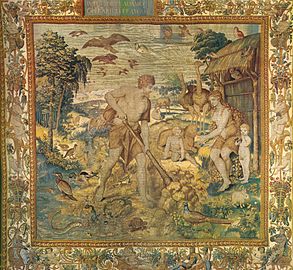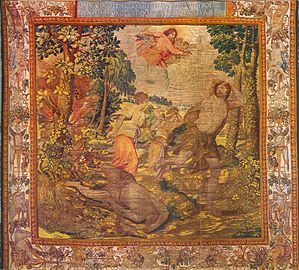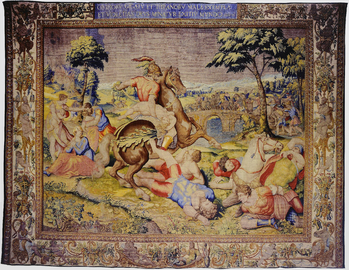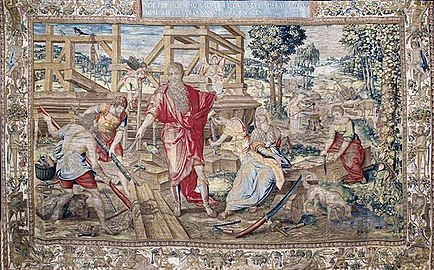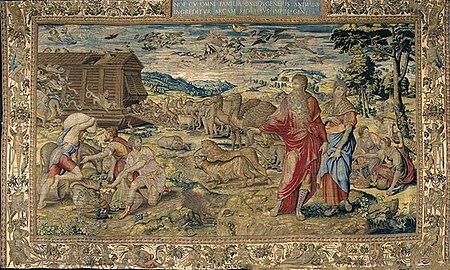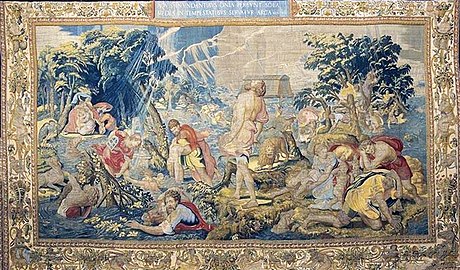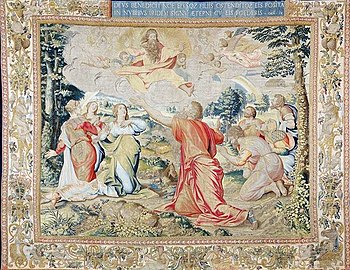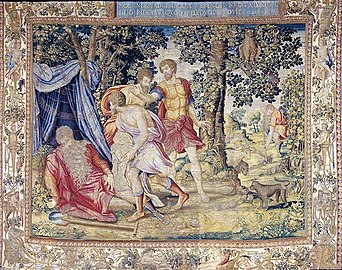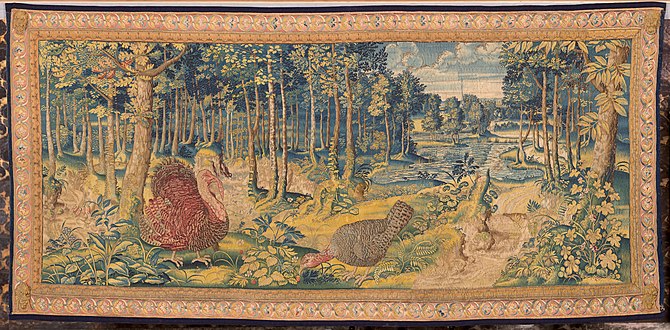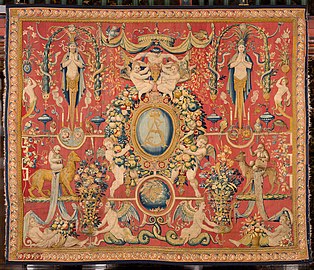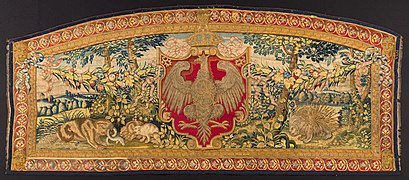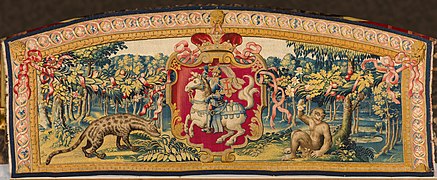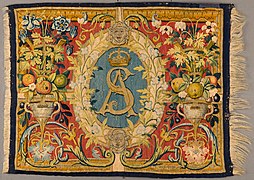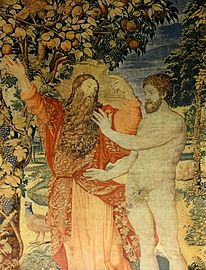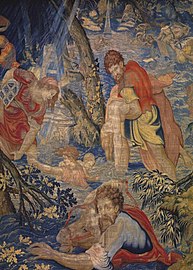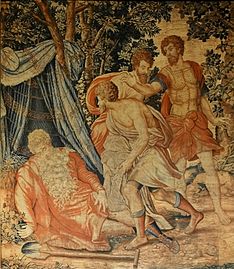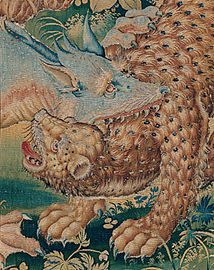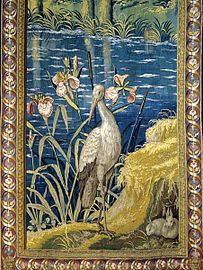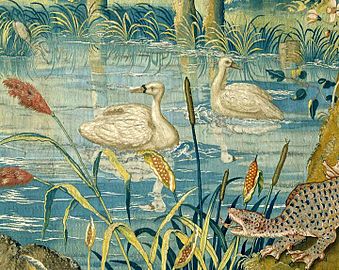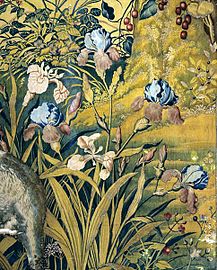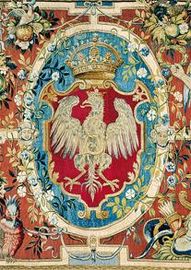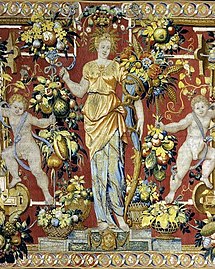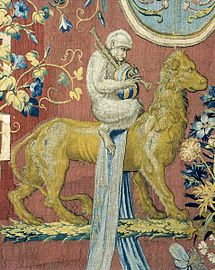Wawel Arrases
Jump to navigation
Jump to search
In Polish literature, the term arras (from the town of Arras in Artois, France) refers to tapestries commissioned by King Sigismund Augustus of Poland for his residence at the Wawel Castle, as well as other tapestries of similar quality made in Flanders in the 15th–16th centuries. Arrases are closely woven, using wool, silk and large amounts of silver and golden thread, and are characterized by their elaborate and subtly executed design. (Holc, Jerzy (2012) "Wawel tapestry collection: an overview of past and present conservation practice in Krakow, Poland" in Tapestry Conservation: Principles and Practice, Routledge, pp. 171−172 )
Wawel arrases are part of the Wawel Royal Castle National Art Collection.
Biblical scenes
[edit]Story of the First Parents
[edit]-
Paradise Bliss
-
Adam Tilling the Ground
-
Abel's Offering
-
Cain Leading Abel to His Death
-
Cain Slaying Abel
-
Flight of Cain
Story of Noah
[edit]-
Wickedness of Man
(at the Royal Castle of Warsaw) -
Noah Conversing with God
-
Construction of the Ark
-
Animals Entering the Ark
-
The Flood
-
Animals Leaving the Ark
-
Noah's Thanksgiving
-
Noah Blessed by God
-
Drunk Noah
Story of the Tower of Babel
[edit]-
Construction of the Tower of Babel
-
Wrath of God
-
Confusion of Tongues
-
Dispersion of Nations
Verdures
[edit]-
Dragon Fighting with a Panther
-
Two Panthers, a Pheasant and a Monkey
-
Otter with a Fish
-
Stork and Rabbits
-
Turkeys
Grotesques
[edit]-
Victory between the arms of Poland and Lithuania
-
Ceres between the arms of Poland and Lithuania
-
Royal monogram supported by laughing satyrs
-
Royal monogram with a globe
-
Royal monogram with nymphs and Native Americans
-
Royal monogram with musical satyrs
Small tapestries
[edit]-
Above-door tapestry with the arms of Poland flanked by a beaver and a porcupine
-
Above-door tapestry with the arms of Lithuania flanked by a hyena and a monkey
-
Above-window tapestry with the arms of Poland flanked by a dormouse and an unidentified canine
-
Above-window tapestry with the arms of Lithuania flanked by a dormouse and an unidentified canine
-
Above-window tapestry with two female figures holding horns of plenty (central portion missing)
-
Under-window tapestry with fruits and musicians
-
Under-window tapestry with fruits and conch blowers
-
Under-window tapestry with fruits and monkeys
-
Chair upholstery with the royal monogram
-
Chair upholstery with a vase of flowers
Details
[edit]-
Adam talking with God
-
Cain slaying Abel
-
The Flood
-
Noah's drunkenness
-
Giraffe-unicorn
-
Dragon fighting with a panther
-
Stork
-
Salmander and swans
-
Pelican
-
Irises
-
White Eagle, coat of arms of Poland
-
Pursuer, coat of arms of Lithuania
-
Ceres
-
Monkey playing bagpipes on lion's back
-
Exotic bird

